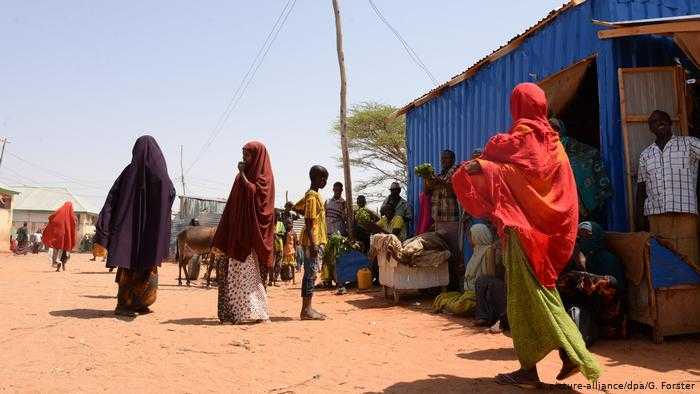- The program, which runs for 18 months, aims to support political stabilization and reconciliation in Somalia, a fragile country in the Horn of Africa.
- In line with the National Stabilization Strategy the financing will go to water infrastructure, security, and reconciliation initiatives.
- The EU is making tangible progress in supporting Somalia’s transition to a peaceful and stable nation. The project also seeks to enhance the legitimacy of Somali authorities in locations recently liberated within Hirshabelle, Galmudug, Southwest, and Jubaland State.
The European Union alongside the Nordic International Support Foundation have launched a $4.9 million Rapid Nationwide Stabilisation project in Somalia aimed at further strengthening the fragile country’s water infrastructure, security and reconcilliation initiatives.
The European Union to the Federal Republic of Somalia together with the Somali authorities and its implementing partner the Nordic International Support Foundation recently launched the new program which will run over an 18-month period.
“We are delighted to launch this programme and to contribute towards political stabilization and reconciliation in Somalia. We are confident that this programme will help the government establish services to the people,” the Ambassador of the EU to Somalia Tiina Intelmann said.
Over the past couple years, the European Union has invested a significant level of resources including aid, debt relief, and security in Somalia. The EU is also a critical partner for Somalia in the development and security fields, and one of its largest international donors.
A report by the International Institute for Political Studies, says Mogadishu’s stability is essential for European member states for a number of reasons, ranging from maritime security to violent extremism as well as climate shocks and migrations.
”Somalia is among the beneficiary countries of the EU Trust Fund for Africa, which was established at the Valletta Summit in November 2015 to address the root causes of forced displacements and irregular migrations, create job opportunities, ensure support to IDPs (internal displaced persons) and returnees, and prevent conflicts and radicalization processes. One of the key instruments adopted by the European Union to assist the Somali government in restructuring and reforming the national security sector is capacity-building,” the report stated.
It further indicates that the launch of the EU training mission in Somalia dates back to 2010, adding that the mission is now made up of over 203 units from seven EU member states, and had trained about 7,000 Somali soldiers by mid-2020.
Read also: Better migration policies can speed up prosperity globally – World Bank
Speaking during the launch of the new project, the Minister of Federal Affairs and Reconciliation of the Federal Republic of Somalia Ahmed Fiqi welcomed the milestone saying: “we fully support this program and its ability to foster overall stabilization within Somalia.”
In line with the National Stabilization Strategy (Community Recovery, Social Reconciliation, Local Governance, and Rule of Law), the new project is seeking to address the issue of water infrastructure (Community Recovery).
In response to reported damage caused by Al-Shabaab attacks, the programme will rehabilitate damaged water infrastructure, including boreholes, nature-based water catchments, and other water-related activities.
The project will also prioritise security matters in particular enhancing local governance and the rule of law initiatives. This means that the programme will contribute to rebuilding crucial government infrastructure, such as police stations, and installation of solar street lights in the newly liberated areas. It will also focus on building reconciliation among communities.
Peacebuilding in newly liberated areas is closely linked to social cohesion and reconciliation. The Ministry of Interior, Federal Affairs and Reconciliation leads the reconciliation efforts where inter-clan conflicts are hindering the peace process.
The project also seeks to enhance the legitimacy of Somali authorities in locations recently liberated within Hirshabelle, Galmudug, Southwest and Jubaland State.
At the moment, roughly seven million Somalis, almost half of Somalia’s 17.1 million population, are grappling with face severe lack of food due to the worst drought gripping the Horn of Africa in nearly 40 years.
Available data also shows that over half a million Somali children suffer severe malnutrition, 173,000 more than during the number reported during the famine in 2011.
Over one million Somalis have also been internally displaced due to the lack of food and water and seek to relocate to areas where they can access international humanitarian supplies.
Unfortunately, as the 2022 drought worsened, populations in al-Qaida-linked al-Shabaab suffered as the militias increased taxes amid economic downturns and natural disasters to compensate for thinning revenues. As communities rebelled, the al-Shabaab turned wild going to the extent of poisoning and destroying water wells, worsening the crisis.
